 One of our bestselling titles from last year — King Hui: The Man Who Owned All The Opium In Hong Kong, by Jonathan Chamberlain — was chosen by Dymocks Booksellers last month as one of their 100 great reads of the decade. Below we print the first few pages of the book.
One of our bestselling titles from last year — King Hui: The Man Who Owned All The Opium In Hong Kong, by Jonathan Chamberlain — was chosen by Dymocks Booksellers last month as one of their 100 great reads of the decade. Below we print the first few pages of the book.
Introduction
This is the story of a man’s life. He was not an important man, if importance is measured by social position, but he was a man who was at one time rich and socially well-connected, and he might have continued to be if only he had been just a little bit different – but then this book would not have been written. Instead, like Icarus, he revelled too much in the glorious sensation that all possibilities were open to him. Then, singed, he fell headlong, tumbling down through the layers of Hong Kong society – now and then his descent was interrupted, occasionally he wafted upwards briefly on a favourable thermal – but always, inevitably, the fall continued until he hit rock bottom.
He was a man of certain uncommon gifts whose destiny it was to be drawn irresistibly to folly. His story is the living story of Hong Kong. This book is, therefore, a subjective, intimate history of this curious territory: where Shanghainese money and industry, Cantonese grit and fiery doggedness, and British phlegmatism and sense of order created a place where East and West worked out a way of living together.
Histories of Hong Kong have unanimously ignored the man in the street, concerning themselves instead with the dry bureaucratic colonial facts and particularly with the prisoner-of-war experience. But what of the local experiences of the war, and more importantly perhaps, of daily life during the peaceful years both before and after the war?
There is a smell that distils for me all the essential ingredients of Hong Kong. It is the smell of browned cubes of tofu being heated in a dry wok by a street hawker. Black heat waves vibrate upwards carrying the stench, worse than diesel fumes, of the marinade that this tofu has sat in, seemingly for days on end: vinegar, sesame oil, chilli and shrimp paste. Not for nothing is it called chow tofu, stinky beancurd. This is the authentic smell of Hong Kong. This book is a stinky beancurd history of this city.
***
The island of Cheung Chau lies about eight kilometres south south-west of Hong Kong’s main harbour, less than an hour by ferry from the centre of the city. It is a small but densely populated island. In the spring of 1976 I came to live on Cheung Chau. I had come for the simple reason that it had everything an island should have. It was a fishing village with a waterfront and a pier where the ferry came, and when you got off the ferry, there you were, right in the middle of the village. There was no ugly hinterland of docks to walk past.
The island was still quiet then. It is amazing to remember a deserted waterfront on a midsummer Sunday. Now, of course, it has been discovered and the ferries are packed with day-trippers. But back then it was different. It was a place discovered only by those in need of cheap rents or a quiet, unruffled life.
Among the people I met very quickly was a slight, dapper Chinese gentleman who went by the name of Peter Hui. He had an easy, charming smile and a reputation for borrowing money and not repaying it. He would have been in his early sixties then. The flesh on his face was taut and he complained of ulcers or a mysterious heart complaint which seemed to prevent him from working as full-time as he insisted he had to in order to survive. Yet he did survive. No-one was really sure how he managed it.
From time to time he would hint of a past that would be worth telling – but, naturally, he said, he couldn’t tell the whole truth. In particular, he often talked about the years of the Japanese occupation. “You wouldn’t believe how rich I was in those days,” he would say to me over a bottle of Tsingtao beer. “During those years I had the largest string of ponies at the Jockey Club. Believe me, Jonathan, I’m not lying to you. I gave them brandy while people were starving.” He shook his head at the perplexing iniquities of fate.
We would be sitting at a small round table under the open sky. Girls from the fishing boats would pass by, dressed in thin cotton pyjama suits and wearing conical rattan hats. The older women had deep tanned and heavily creased faces and, as they laughed, flashed rows of gold teeth. Where have they all gone? It is an age that has slipped quietly away. Time slips past us so fleetingly. It is difficult to stop and capture the small human details.
There was a general consensus among the European community that Peter Hui was not to be entirely believed. He would say anything to get you to buy him a drink. But the stories he told over the years didn’t change. Liars need impossibly good memories. And the purple swollen knuckles on his hands were testimony enough to the kung fu prowess he claimed for himself.
The years passed. Cheung Chau ceased to be a haven from the city. Life became busier. The year 1997 loomed ahead. It seemed to cast a large shadow into the past. It posed questions. One of the questions for me was what life in Hong Kong had been like for the local people in the years gone by. It seemed to me important to capture the past now that we were still there. For the present seemed already like part of the past – and no-one knew what the future after 1997 would bring. There wasn’t a book that gave any real sense of the place in an informal way. I didn’t know that this was exactly the kind of book that was to fall to me to write.
One day, Peter stopped me in the street.
“I need to talk to you, Jonathan. Are you in a hurry?”
I shook my head cautiously. We had known each other now for coming on thirteen years.
“I’m getting old. I should tell my story. If you have time, maybe you can write it.”
As we stood in the glare of the sun I looked at Peter and it seemed he had hardly aged at all. He was still the same: alert and impish. I nodded slowly. It was true I was busy but then again, Peter’s life story might be worth listening to. I had always been curious to know more about the racehorses and the years of the Japanese occupation. It occurred to me that there would be no harm in spending a few evenings with Peter. I would get to hear a few stories. Maybe they would be interesting. Maybe not. It didn’t matter. Or maybe they would be everything that Peter had always promised they would be. I had no idea what to expect. As it turned out, Peter’s stories were everything he said they would be. Over the months and years that we talked there was never any sense of discrepancy or impossible overlap. As we talked I set him small subtle tests. He passed them all. I have no doubt at all this is a true story.
This then is the story of Hui Shen-kei, also known as Hui Tak-kwong, also known as Peter Hui, also known as Hui Lo-sze – Respected Teacher Hui. (Hui rhymes with ‘boy’). Known too, when still a schoolboy, as ‘King’ because of his kung fu prowess. This is the story of a true son of Hong Kong, a hero in his own way, though most readers will probably see him as an anti-hero. This is the life story of a Hong Kong playboy, gambler, kung fu fighter, wartime collaborator with the Japanese, CIA agent, mastermind of armed robbers, associate of triads; a man who once, for a very short time, owned all the opium in Hong Kong.
***
I am in Peter’s rooms overlooking the beachfront. Ostensibly it is the island’s RSPCA clinic but Peter has taken it over – he is the RSPCA man on the island. Usually the room is bare and functional but today it is bright with flowers. It is Chinese New Year. His few photographs line the walls – “I have lost so many things. I have been so careless!” This, as it turns out, is an understatement.
Although Peter professes to be a Christian there is a porcelain Buddha and another set of figures showing the folk deities: Fu’k, Lu’k and Shao – the human embodiments of Happiness, High Rank and Long Life – the three great traditional desires of the Chinese.
Otherwise the room is spartan. There is an office desk with a telephone on it and a metal table for the veterinary inspections. Under it, in separate cages, are two mynah birds. Their sharp shrieks burst out from time to time: “AAANGAANG!… Grrrek Grrrek!… Ngahwee… Ngahweeeee… Warrowarrowarrow… wooowwooo… ngeow… ngeow!” It is a wide repertoire of noises. Have they learnt them from the animals that file in every Wednesday when the RSPCA vet comes? Two dogs mill around. “Shut up! Sit down!” Peter slaps them and they obey.
Occasionally there is a loud whirr as a helicopter approaches, red lights whirling. Behind Peter’s house is the hospital – little more than an emergency out-patient clinic and a geriatric home. Two hundred yards along the beach is the helicopter landing pad. Someone has to be taken into town for serious medical treatment. There is no point talking now. The sound is deafening. Eventually the helicopter takes off and the sound drifts off into the distance and merges with the other sounds that come in from outside. There is a basketball court not far away and sounds of laughter and shouting interrupt the silence but we are at the back of the village and it is mainly quiet. Of course there are the yapping village dogs. But we can also hear the hush of waves gently slapping against the sand.
I fix the microphone to Peter’s shirt, press the record button, check the batteries, check the tape is moving, nod to Peter that we’re ready to start and then I lean back in my chair to wait.
“What shall we talk about today?” he asks.
“Tell me about your first memory,” I say.

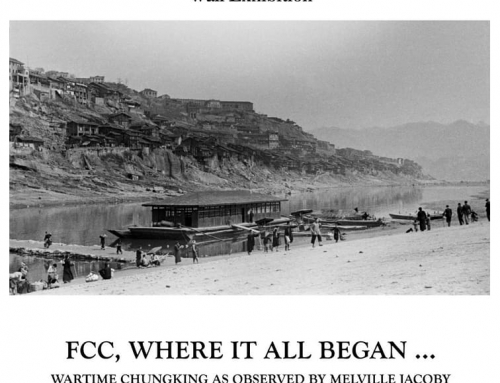
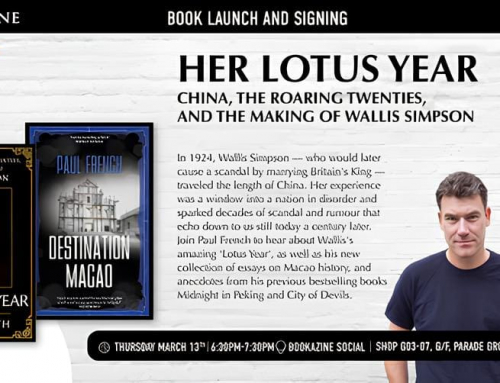
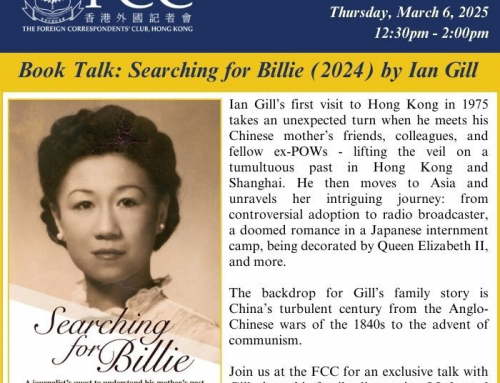
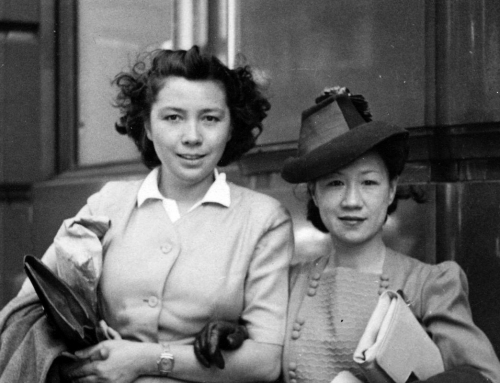
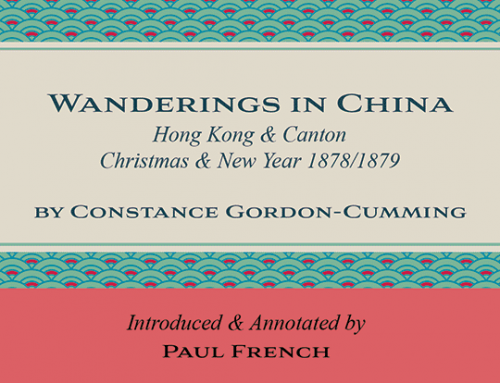
Leave A Comment